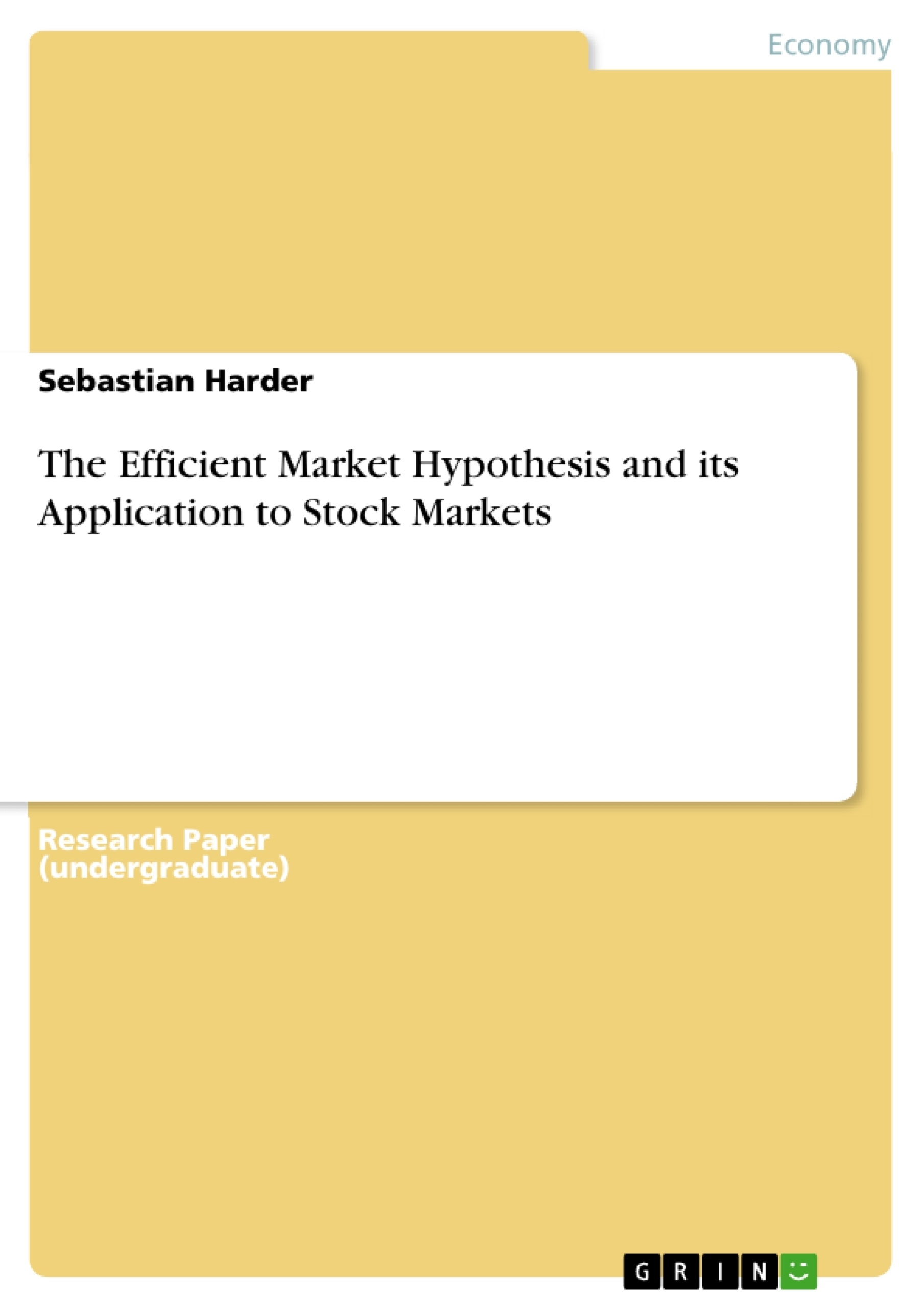Especially after the 90ies, where the stock markets raised enormously, many private investors joined the stock market and were blended by abnormal profits and neglected possible losses. The same behavior could be observed before the Financial Crisis became reality. But each endless raising stock market would finally collapse, because stock prices are randomly and only driven by relevant news. The adjustment to the news is quickly. This is the theoretical argumentation of the Efficient Market Hypothesis (EMH), which will be evaluated in this paper.
The author gives an overview about the EMH by explaining the basic principles and its mathematical formulation. The practical part evaluated the EMH on selected examples, where the theory could only be partly approved.
Inhaltsverzeichnis (Table of Contents)
- Introduction
- The Efficient Market Hypothesis
- Definition
- Tests
- Test of weak efficiency
- Test of semi-strong efficiency
- Test of strong efficiency
- Mathematical Description
- Introduction to Stochastic Processes
- General concept of the EMH
- Martingale model
- Random Walk - model
- CAP - model
- Resume
- Application to Stock Markets
- General behavior of stock markets
- Tests of weak efficiency
- Test of semi-strong efficiency
- Criticism
- Rationality
- Market Anomalies
- Joint Hypothesis
- Outlook
Zielsetzung und Themenschwerpunkte (Objectives and Key Themes)
This paper provides a critical introduction to the Efficient Market Hypothesis (EMH), exploring its theoretical foundations and empirical applications in stock markets. The paper aims to explain the basic principles of the EMH, its mathematical formulations, and its relevance to investment strategies.
- The Efficient Market Hypothesis (EMH)
- Testing the EMH
- Empirical Application of the EMH to Stock Markets
- Criticisms of the EMH
- Implications of the EMH for Investment Strategies
Zusammenfassung der Kapitel (Chapter Summaries)
- Introduction: This chapter introduces the central question of whether financial analysts are worth their compensation and explores the historical context of the Efficient Market Hypothesis (EMH) in relation to stock market behavior.
- The Efficient Market Hypothesis: This chapter defines the EMH and its key principles. It explains the different levels of market efficiency (weak, semi-strong, and strong) and explores various tests used to assess the validity of the EMH. The chapter also delves into the mathematical description of the EMH, including stochastic processes, the martingale model, the random walk model, and the CAP model.
- Application to Stock Markets: This chapter examines the practical implications of the EMH in stock markets. It analyzes general stock market behavior and presents empirical evidence related to the weak and semi-strong forms of market efficiency.
- Criticism: This chapter critiques the EMH, addressing concerns related to the rationality of investors, market anomalies, and the joint hypothesis problem.
Schlüsselwörter (Keywords)
The key concepts and themes explored in this paper include: Efficient Market Hypothesis (EMH), market efficiency, weak, semi-strong, and strong forms of efficiency, tests of market efficiency, mathematical modeling of stock prices, stochastic processes, martingale models, random walk models, CAPM, market anomalies, and investment strategies.
- Citar trabajo
- Dr.-Ing. Sebastian Harder (Autor), 2008, The Efficient Market Hypothesis and its Application to Stock Markets, Múnich, GRIN Verlag, https://www.grin.com/document/158375



